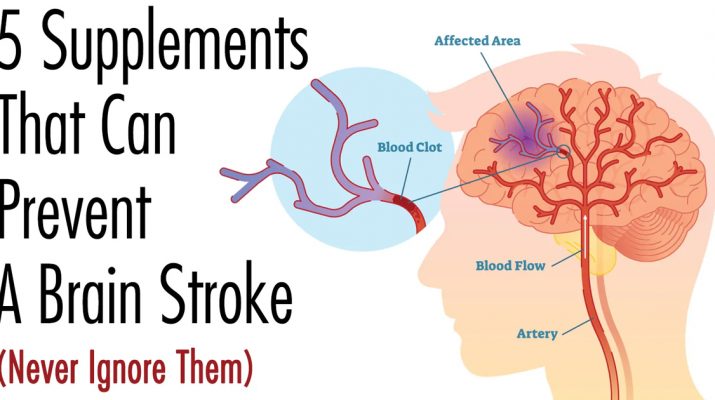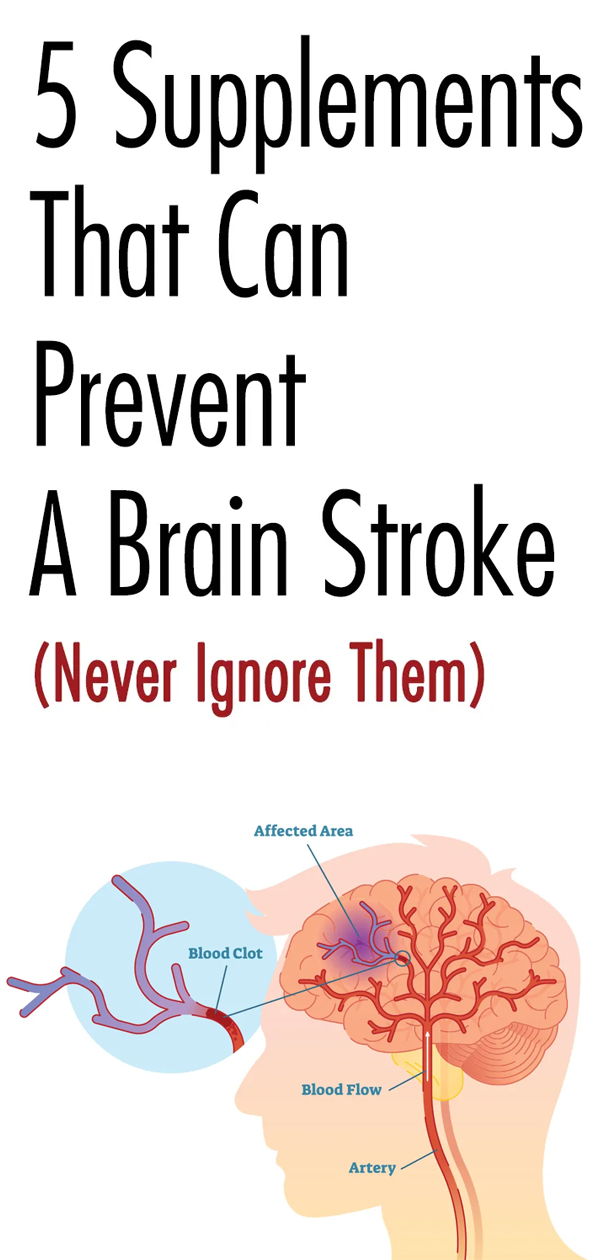Stroke is the third leading cause of death in the United States and the leading cause of long-term disability. Strokecenter.org estimates that each year, 795,000 people suffer a stroke in the United States. Over 140,000 die and tens of thousands are permanently disabled.
According to the Centers for Disease Control and Prevention (CDC), diabetes, high cholesterol, hypertension, obesity, and smoking lead as risk factors for stroke. Unfortunately, the CDC estimates that one in three U.S. adults has at least one of these conditions.
Because what we put into our bodies plays a critical role, we are going to discuss foods that can improve your chances. Whether you get these ingredients through whole foods (the best source) or through supplements, you can be confident they’re all “heart-healthy.”
Let’s do this!
Here Are 5 Supplements That Can Prevent A Stroke:
1. Dpa Fatty Acid
DPA is a polyunsaturated fatty acid found in fish. You can also get this through fish oil supplements. Studies demonstrate that DPA improves fat metabolism, promotes cell growth, and reduces inflammation.
Long-chain fatty acids, such as omega-3s, improve not only our heart health but also our brain function. As one of the most well-researched supplements in existence, omega-3s play an irreplaceable role in preventing stroke.
Other food sources of DPA include grass-fed beef and seafood. Alcohol consumption is a known barrier to omega-3 absorption; as such, cutting back or abstaining from alcohol should be considered.
2. Cacao
Do you occasionally enjoy a chunk or three of dark chocolate? Well, “hear ye, hear ye,” this article is for you. According to a 21,000-person, 11-year study, researchers in England discovered that Brits who ate as much as 3.5 ounces of dark chocolate a day had fewer strokes than those who abstained.
Not all chocolate is created equal, however. When it comes to heart health, choose high-quality dark chocolate that contains at least 70 percent cacao.
3. Fiber
Okay, so … Americans rarely eat enough fiber. The Institute of Medicine prescribes 38 grams of daily fiber for men, and 25 grams of fiber for women. How much fiber do we eat, on average? 16 grams.
Fiber is one of the best ingredients for a healthy heart. Research shows that fiber lowers both blood pressure and cholesterol – two of the main risk factors for stroke we discussed earlier. Additionally, fiber increases satiety or feelings of fullness. As a result, we are less likely to indulge our sugar cravings.
Excellent sources of fiber include apples, barley, beans, berries, carrots, celery, citrus fruits, nuts, oatmeal, and whole grains.
4. Potassium
Potassium is critical to heart health. In fact, without potassium, our heart wouldn’t be able to beat since the nutrient is required for nerve communication. (The heart relies on a vibrant network of nerve cells to communicate with the brain and other parts of the body.)
As many as a hundred thousand times a day, potassium helps the heart effectively distribute blood throughout our body. Potassium also helps our muscles effectively move and promotes kidney function.
You can find potassium in a dietary supplement or from natural food sources. The best foods include avocados, bananas, fat-free yogurt, squash, sweet potatoes, and pure orange juice.
5. Folic Acid
Folic acid is an essential B vitamin that assists with breaking down the amino acid homocysteine. If the body contains too much of this, it can trigger a stroke.
A recent study shows that women who take at least 1,000 micrograms (µg) daily have a 46 percent lower risk of developing high blood pressure. Given the amount of folic acid required to achieve these benefits, you should combine supplements with dietary sources.
Good food sources of folic acid include avocados, broccoli, and Brussels sprouts. Dried beans, nuts, okra, peas, spinach, and turnip greens also make the list.
Final Thoughts: Let’S Get Heart Healthy!
We need to consciously do what’s best for our heart, day in and day out. We’d be wise to pay close attention. After all, our “ticker” is (literally) our lifeline. Every cell in our body depends on a healthy and functioning heart to distribute oxygen and nutrients. Every organ requires a constant influx of oxygen-rich blood to work, and this includes our precious and delicate brain.
In conclusion, proactively caring for our heart is an important part of living a healthy and vigorous life. Make every effort to maintain a healthy weight, get regular exercise, and cut back on or eliminate your vices.


